It is believed that in recent decades, the quality of food produced by people around the world has deteriorated significantly. This is due to additives in industrial food production, as well as methods of growing fruit, vegetables and animals, all of which aim to keep food products commercially available for longer.
Our ancestors did not eat most of the foods we find in the typical supermarket today. But even so, the idea of a healthy diet hasn't changed much since the first gourmets discovered that a piece of meat is much tastier and lasts longer if you season it with herbs and spices before cooking it.
Before man began to create drugs in laboratories, nature itself served as a "pharmacy". People of different cultures and nationalities have collected and specially cultivated certain plants for centuries to treat various ailments. Most of them were included in the preparation of the food or consumed separately in the form of potions and other extracts.
Why it is good to add herbs and spices to food

Herbs and spices not only add flavor to food. They improve our health and prevent rapid aging. Most herbs and spices are high in antioxidants and anti-inflammatory compounds and are sometimes unforgivably underrated weapons in the war against chronic disease.
Many herbs and spices have attributed legendary properties by mankind. Some of these legends are pure fiction, as in the case of garlic, which in folk tales scares away vampires and "evil spirits."
But there is no doubt that even in our time, which can be called the "Era of irregular eating", the qualities of pure herbs and spices remain unfailingly valuable. These herbal products are of great benefit in the prevention of infections and many serious diseases and serve our good health.
Let's take a look at these aromatic food and medicinal plants that are considered particularly beneficial. Since there are quite a few, we will select those herbs and spices that, in addition to being considered one of the most healthy, are also well-studied by science, affordable and most commonly used by people all over the world and also their use is considered safe for health.
The most healthy herbs and spices
Garlic
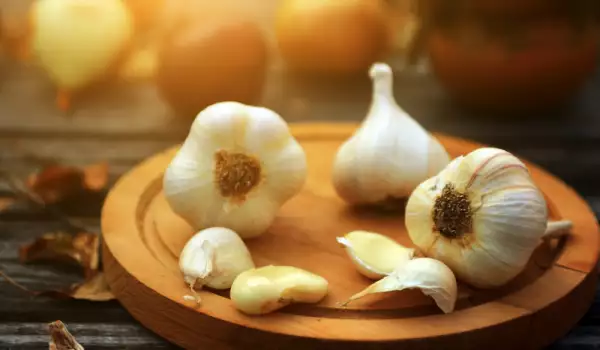
Worldwide, garlic is one of the most revered foods of all time, both in folk and official medicine and it certainly deserves the right to top our list. It has a remarkable ability to lower blood pressure, prevent blood clots, clean blood vessels and improve cholesterol levels.
Allicin is the compound that gives garlic its immune-stimulating properties, proven against viral illnesses and seasonal colds. Allicin is responsible for the specific aroma of garlic (the one that, according to legend, vampires do not like).
To activate, fully release and get the maximum dose of this substance, it is necessary to crush or cut the clove. Allicin is formed only when the structure of garlic is broken and the enzyme alliinase comes into contact with the substance alliin (before that they do not come in contact with the cell). Therefore, there is no point in swallowing the cloves whole, as many do, for fear of an unpleasant smell.
When cooking, avoid overheating the garlic, so that it doesn't destroy its healing power. As often as possible, add 1-2 cloves of garlic to prepared foods, salad dressings, soups, etc.
Onions
Onions are also used in cuisines around the world and are also an ancient medicinal plant. Although they vary from variety to variety, most of the beneficial substances contained in onions are found in all of them.
Onions contain over 25 different flavonoids that have both antioxidant and anti-inflammatory effects. Another type of antioxidant in onions, quercetin, has anti-inflammatory effects and is thought to help lower blood pressure and control cholesterol. Quercetin has also been shown to lower blood sugar levels as well.
Onions are particularly rich in so-called indigestible fiber, which is essential for maintaining gut health. Bacteria that live in the gut use them as food and to produce byproducts called short-chain fatty acids. These acids are important for maintaining gut health and integrity, as well as supporting immunity and digestion.
Parsley
Parsley freshens the breath, cleanses and rejuvenates the entire organism, thanks to its high level of chlorophyll. Scientists have repeatedly proven that chlorophyll stops the growth of bacteria, counteracts inflammation and lowers glucose levels. In addition, it has an analgesic effect, improves the composition of the blood, improves immunity, stimulates digestion, freshens the breath and is even believed to prevents the development of cancers.
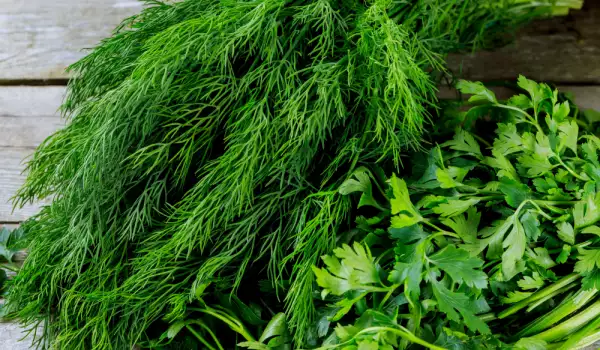
Dill
Dill contains an essential oil that gives it a strong rich aroma. Its benefits are indisputable: it strengthens the immune system, has a sedative effect, helps with insomnia, neuroses, depressive states, reduces pressure, strengthens the heart muscle, has an expectorant effect, a powerful diuretic, relieves headaches and menstrual pains, intestinal and stomach cramps, normalizes the menstrual cycle, helps with flatulence and constipation, increases appetite and improves digestion, improves vision. Dill is a natural antioxidant, it rids the body of impurities and toxins.
Rosemary
Rosemary improves memory and brain function. It contains substances that suppress the processes of separation of the vital human neurotransmitter acetylcholine. Rosemary is also a powerful weapon in the fight against inflammation, often used to treat arthritis. In addition, it protects the walls of blood vessels, improves blood circulation, normalizes the activity of the cardiovascular system, accelerates tissue regeneration, improves the functioning of the immune system, helps fight fungi.
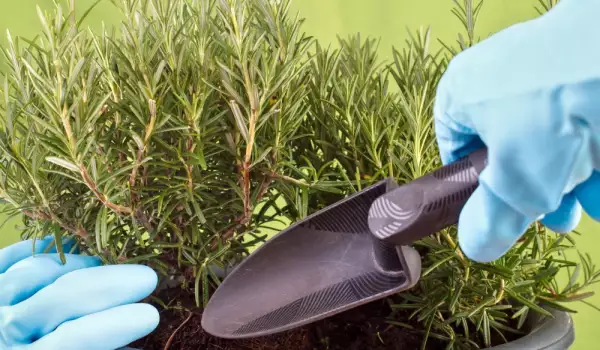
Sage (sage)
Sage has an antidiabetic effect that has been proven in animal experiments. This property is still awaiting confirmation for the human body, but it has long been known with certainty that sage contains anti-inflammatory compounds and antioxidants. It has been used in Ayurvedic medicine for centuries as a cleanser due to its antiviral and antibacterial properties.
Thyme
Thyme is an aromatic herb with valuable antioxidant properties and a rich history as an ingredient that adds flavor to food. It has been found to contain an oil called thymol, which has anti-inflammatory, antioxidant and antiseptic properties beneficial for many health problems. A sprig of fresh thyme or fresh leaves can be an aromatic addition to meat, vegetable (especially tomato) dishes or egg dishes, as well as to soups. It has long been used in Italian, French, Mediterranean and Middle Eastern cuisine.
Oregano

Oregano also contains thymol. It is recognized as the plant with the highest antioxidant activity. This wonderful herb has four times more antioxidants (per gram) than blueberries. In addition to thymol, oregano contains carvacrol, another oily liquid that has antifungal, antibacterial and antiparasitic properties. All of these anti-inflammatory compounds make oregano one of the healthiest foods to add to your diet.
Black pepper
It is the staple spice on most tables around the world and is commonly used to enhance the flavor of everyday meals. Black pepper, including piperine, the active ingredient in it, has unsurpassed health-promoting properties. Studies show that black pepper has antioxidant, antimicrobial, anti-inflammatory and stomach-protecting effects. It turns out that pepperic acid has the amazing power of suppressing swelling and cytokine production, as well as relieving pain and other symptoms of rheumatism.
Turmeric
Turmeric contains curcumin, one of the most powerful antioxidant and anti-inflammatory compounds in the plant kingdom. Curcumin has been extensively studied by scientists. It has been shown to have anti-cancer properties and the ability to slow cognitive decline in laboratory animals. Turmeric is a healthy food for the liver, the main link in detoxification. It is also widely used in Ayurveda and Chinese medicine to treat many ailments, including arthritis and musculoskeletal disorders. According to modern research, turmeric has an analgesic effect in addition to its anti-inflammatory properties. According to a recent study, combining turmeric with black pepper helps your body absorb this spice even better.
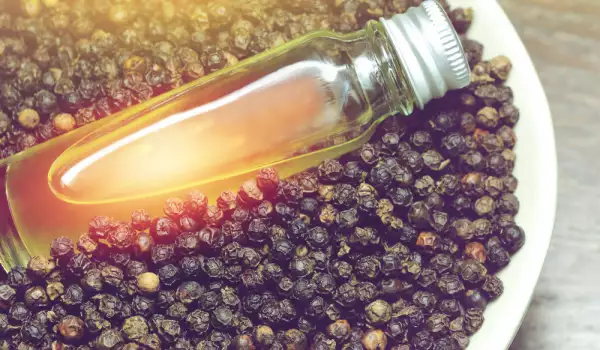
Cinnamon
Cinnamon is one of the most popular spices in the world. Now this spice is used more often to add a spicy flavor to sweets than as a medicine. However, scientists have repeatedly proven that cinnamon bark (from cinnamon sticks) can have a beneficial effect on the body. Cinnamon lowers blood sugar and cholesterol levels, has antioxidant and anti-inflammatory effects thanks to just one component called cinnamic aldehyde. Studies show that taking it on an empty stomach can lower blood sugar levels by 10-29% in people with diabetes. Cinnamon also helps lower blood pressure, as well as triglycerides and "bad" cholesterol.
Ginger
Used for centuries in Asian medicine and cuisine, ginger is known for its ability to suppress inflammatory molecules called leukotrienes and synthesize prostaglandins, hormone-like substances that cause pain and inflammation. Ginger helps to eliminate nausea and reduces the viscosity of the blood, which prevents the formation of blood clots and reduces inflammation. In animal studies, scientists have found that ginger reduces the level of "bad" fats and slows the progression of atherosclerosis (clogging of the arteries).
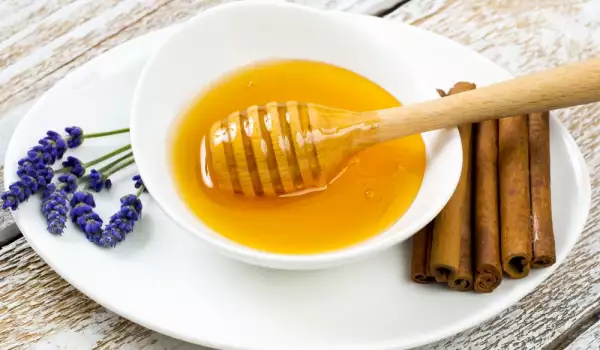
Cumin
Cumin can lower blood sugar levels and even kill the pathogenic bacteria that cause stomach ulcers. Additionally, regular addition of cumin to food can reduce joint inflammation in rheumatoid arthritis.
Some tips for using herbs
Today we can buy fresh green herbs all year round. They are also easily grown at home, on a south-facing windowsill, even in the cold season. You can organize a small winter garden in the room or on the balcony. By growing your own herbs and spices, you will provide yourself and your family with vitamins and other nutrients all year round.
If you can't make a green garden on the balcony or windowsill, prepare healthy herbs in summer. Frozen or dry, they work great for your health.
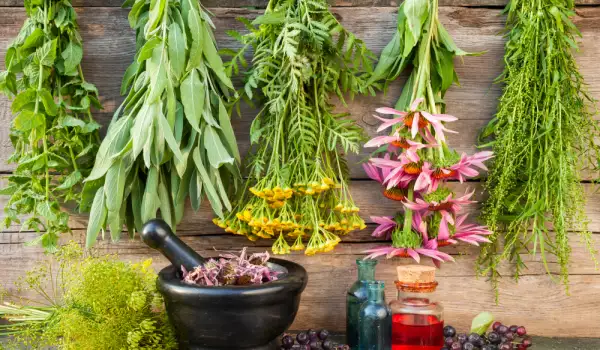

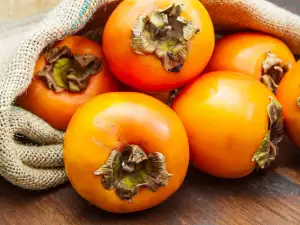
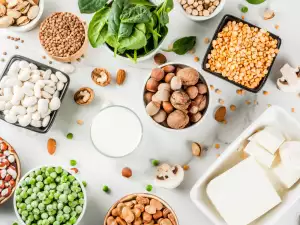
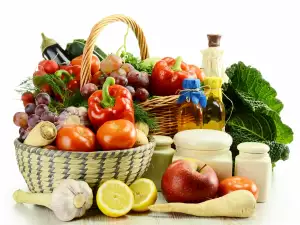
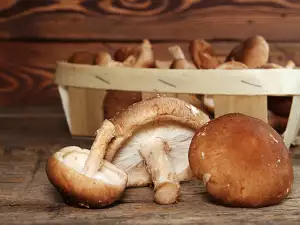


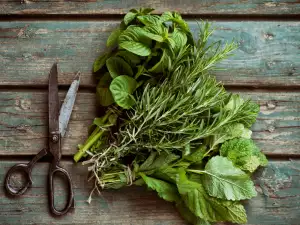

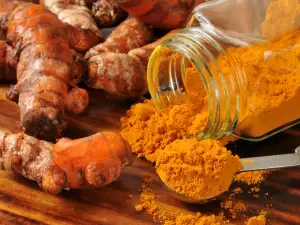
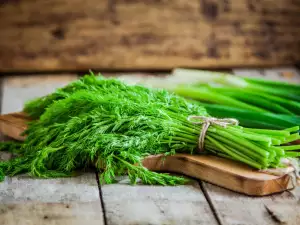
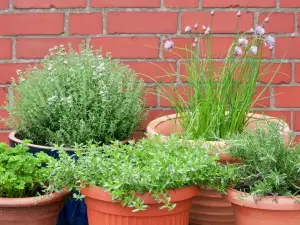
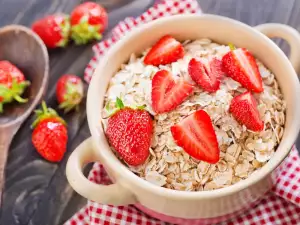

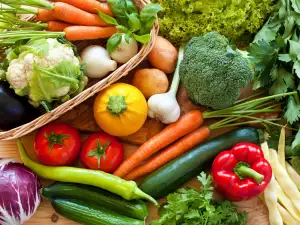




Comments